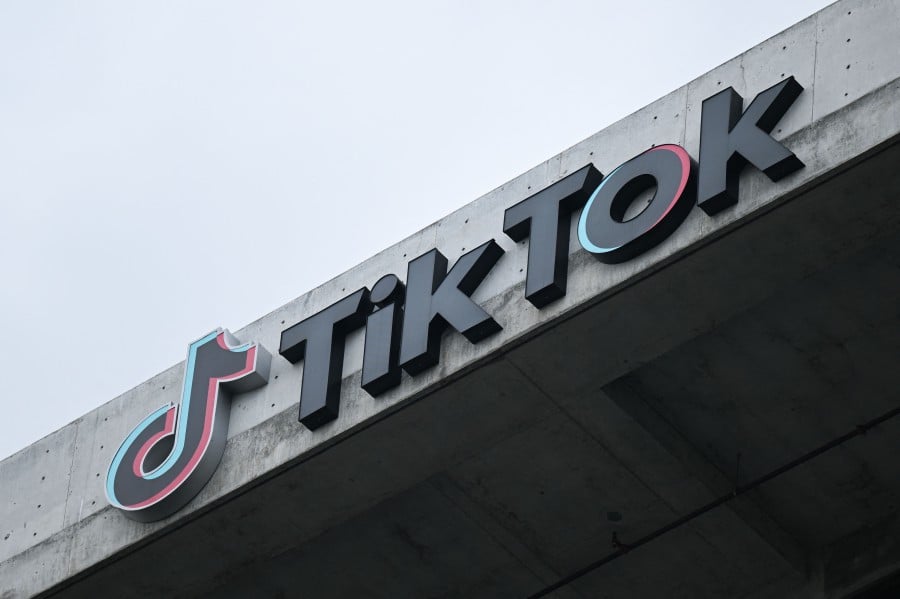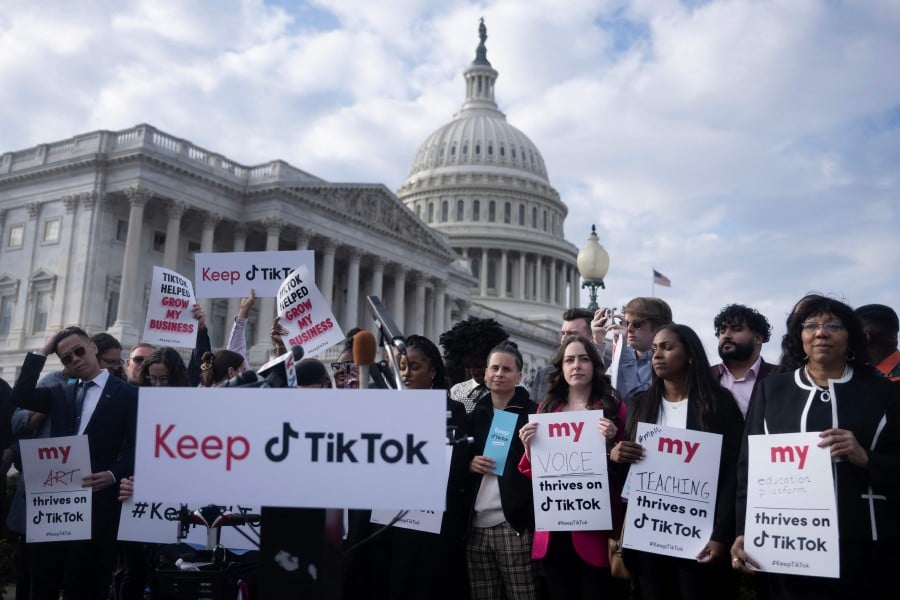

PRESIDENT-elect Donald Trump's repeated support for TikTok has sparked speculation about potential solutions to prevent the app's impending ban in the United States, though the path forward remains unclear.
"We got to keep this sucker around for a little while," Trump told supporters on Sunday, just days after meeting with TikTok CEO Shou Zi Chew in Florida.
Trump, who credits the wildly popular platform with delivering him a large young user base, opposes banning TikTok partly because he believes it would primarily benefit Meta, the Mark Zuckerberg-led company behind Instagram and Facebook.
The situation is complex, according to University of Richmond School of Law professor Carl Tobias, given the various potential solutions and Trump's unpredictable nature.
Congress overwhelmingly passed legislation, signed by President Joe Biden in April, that would block TikTok from US app stores and web hosting services unless Beijing-based ByteDance sells its stake by January 19.
US officials and lawmakers grew wary of the potential for the Chinese government to influence ByteDance or access the data of TikTok's American users.
Even with Trump's decisive election victory and incoming Republican-led Congress, acquiescing to the president-elect's desire and preventing the ban faces significant hurdles.
The law enjoyed rare bipartisan support in a divided Washington, making its outright repeal through a vote in Congress politically unlikely even with Trump's influence over Republicans.
The Supreme Court may offer the clearest path forward. TikTok has appealed to the nation's highest court, arguing the law violates First Amendment rights to free speech.
The court, which is dominated by Trump-aligned conservatives, will hear the case on January 10, just nine days before the ban takes effect.
This follows a lower appeals court's unanimous decision to uphold the law in December.
Another possibility, according to Tobias, is that a Trump-led Department of Justice could determine ByteDance has addressed the law's national security concerns.
However, such a move would likely be seen as caving to China by Congress and others.
The final option is ByteDance selling to a non-Chinese buyer, though the company has consistently refused this possibility.
With 170 million monthly active users, acquiring TikTok's US operations would require substantial resources. As president, Trump could extend the ban deadline by 90 days to facilitate a transaction.
Few potential buyers have emerged, with major tech companies likely deterred by antitrust concerns.
Former Trump Treasury secretary Steve Mnuchin, who runs a private equity fund backed by Japan's SoftBank Group and Abu Dhabi's Mubadala sovereign wealth fund, has expressed interest.
During a recent event with Trump, SoftBank CEO Masayoshi Son pledged to invest US$100 billion in the US economy, though specific investments weren't detailed.
Other contenders include US real estate billionaire Frank McCourt, who aims to make social media safer through his Project Liberty organization.
Elon Musk, given his proximity to Trump and ownership of X, could also have a role to play, as he has expressed plans to transform the text-focused platform into something more like TikTok.
A senior Republican lawmaker recently suggested Trump might orchestrate a "deal of the century" satisfying both US concerns and ByteDance's interests.
The chairman of the US House committee on China, John Moolenaar, told Fox News Digital that once ByteDance accepts it must comply with US law, the situation could progress rapidly.
Any agreement would need Beijing's approval, with US-China relations expected to remain tense during Trump's upcoming term.
This isn't the first attempt to resolve TikTok's US status. In 2020, Trump also threatened a ban unless ByteDance sold its US operations.
While Oracle and Walmart reached a preliminary agreement with ByteDance for ownership stakes, legal challenges and the transition to the Biden administration prevented the deal's completion.
* The article is from AFP